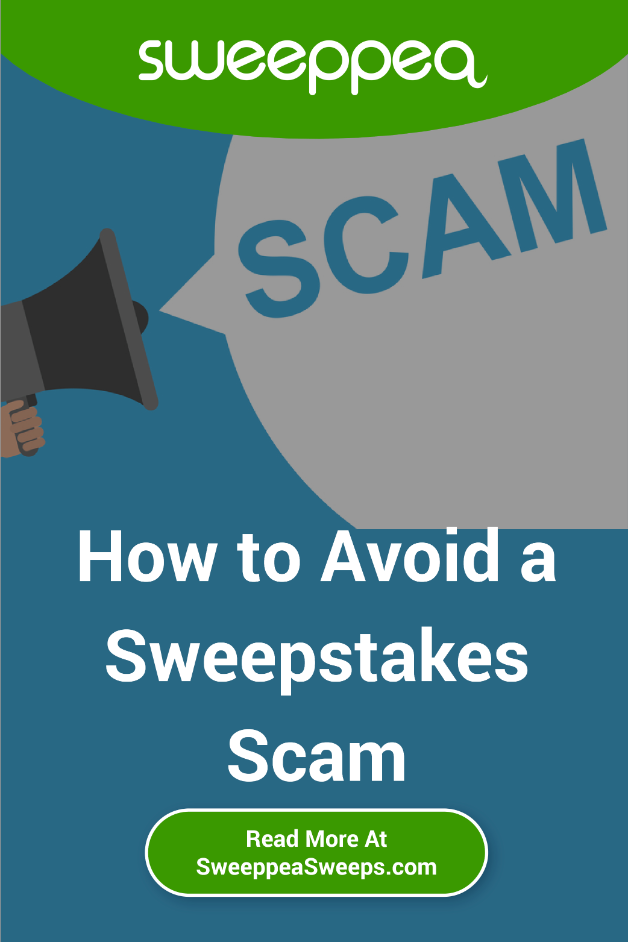
What’s the fastest way to ruin your brand’s reputation? A sweepstakes scam. While you might have not set out to scam your customers, a poorly run sweepstakes is the same thing as a sweepstakes scam in their eyes.
Here is the list of things to avoid if you want to run a successful sweepstakes:
No Official Rules
The Official Rules are a contract between the Sponsor of the sweepstakes and the participants. The Official Rules explain how the sweepstakes will run, who is the Sponsor (or company providing the prizes), what the prizes are and how many will win. This document helps provide proof of fair intent when offering a prize.
Even if you created Official Rules for your sweepstakes, if your entrants can’t easily find them, your sweepstakes will look like scammy. Make sure that the link to the Official Rules is highly visible on all sweepstakes promotional materials.
Your Sweepstakes Rules Checklist
Avoid Clickbait Follow Up Headlines
You might think that you’ll get more opens if you send your entrants emails or SMS messages that mention the words “You’ve Won” or “Urgent Notice.” To your customers, this is a red flag.
Not only will it turn them off from opening any further messages from you, you might even land yourself in legal trouble from an entrant who claims that you told them that they won.
For example, in New Jersey, as in other states, a sponsor is not allowed to advertise that a person has won a prize and require that person to take certain actions or purchase any products or services or participate in a sales presentation in order to obtain the prize.
See sweepstakes laws and rules by state.
Avoid Generic Greetings
Whenever you send out follow-up messages to your entrants, make sure to always personalize them. This is how your entrants will be able to ensure that the message is indeed a genuine message related to your promotion.
On the other hand, sweepstakes scams often use generic greetings like “Dear Winner” because they send out thousands of messages with the goal of finding as many victims as possible.
Check Your Spelling and Grammar
Another telltale sign of a sweepstakes scam is when a sweepstakes promotion is filled with lots of bad grammar, missing words or spelling errors. If you want customers to take your sweepstakes seriously, make sure that all of your promotions, sign up pages, and follow-up messages are error-free.
Follow Marketing Best Practices According to the DMPEA
The Deceptive Mail Prevention and Enforcement Act governs sweepstakes promotional mailings. These are best practices to follow:
- Don’t ask for payments. Sweepstakes are 100% free of costs to the winner(s).
- Don’t ask entrants for sensitive personal information such as Passport, Social Security or Driver’s License numbers or bank account information. The only time the social security number is requested is for tax purposes only and after the winner has signed an affidavit.
- Don’t promise a prize and then not deliver on your promise.
- Don’t put in small, fine print additional prerequisites or conditions for winning. Make sure all requirements are in your Official Rules. States like Rhode Island have specific statutory requirements for placement, font, and wording of the disclosures and Abbreviated Rules.
- Don’t target your sweepstakes specifically to the elderly.
What If You Won
If you are approached as the winner, the best way to check if the promotion is legit is if:
- Do you remember entering the promotion?
- Does the promotion have Official Rules?
- Do the Official Rules say who the Sponsor is?
- Do the Official Rules say who the sweepstakes administrator is?
- If you are asked for payment in any way, including paying for shipping or taxes, report them to the authorities because it’s a scam for sure.
Finally, if you’re thinking about customizing some elements of your sweepstakes or contest make sure to put yourself in your customers’ shoes.
Need help with sweepstakes or contest management? Call 305-505-5393 or email us with your questions.

